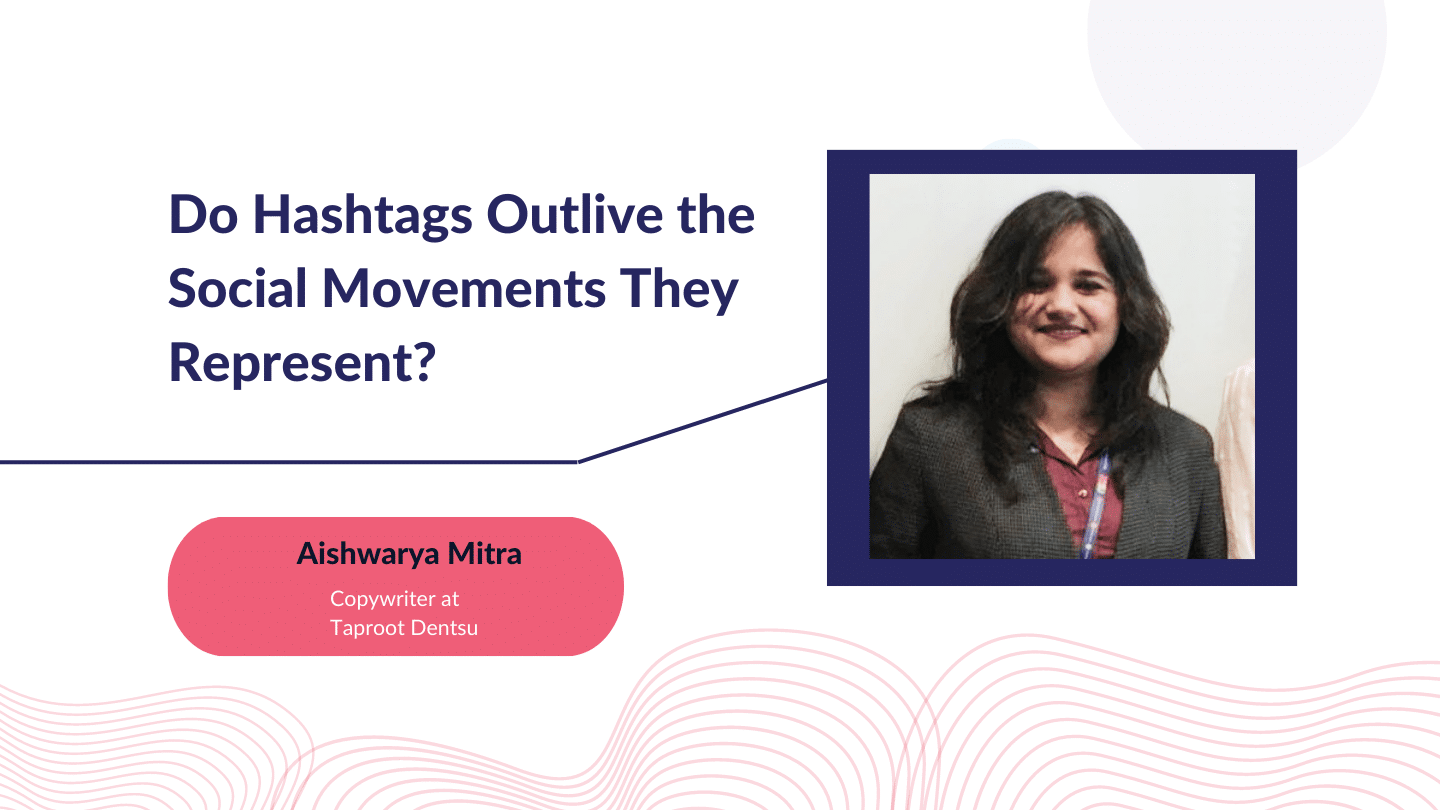Putting up our ideal personas on our social media handles is what defines our generation. We claim to be the woke millennials of the 21st century, being politically correct is important for us. Yet somehow our Snapchat filters tend to cast a shadow over the crude reality of things. Putting up Instagram stories protesting injustice has somehow become more about following a trend, rather than supporting a cause.
Do hashtags outlive social movements?
Do not get me wrong, there are people who genuinely care. The millions of protestors raising up against police brutality have moved me to the core. They renewed my faith in a democracy, in the power of the people. But the silence that followed is all the more disheartening. The way that the people moved on to the next trending topic on social media makes me question whether hashtags outlive the actual cause of our social movements? The aim of this article is not to point out a particular movement, but just to show the generic course of what our liberal ideals have come to.
Beyond the US: on a more global scale
Being an Indian, I wholeheartedly believed in the movement against India’s citizenship changes (the anti-CAA-NRC movement). I supported the cause, and the solidarity that the people of the nation showed, in order to stand up for a marginalized section of the society. Made me swell with pride for my nation and its people. The pandemic has crippled the voices that a mass gathering could raise. Despite laws of social distancing, thanks to social media, opinions could still be presented, the agitation could still be continued. But what could have been a platform to raise awareness has become the Holy Grail for trends.
As a generation, is this what we have come to? Propagating hate speech is easier than voicing the truth? Our social causes are just mere trends? Do hashtags outlive actual human empathy?
From February 2020, Thailand is having a mass agitation against an autocratic government. They have been fighting for their civil rights with full flair, both offline and online. Hashtags are the new slogans, civic grievances and dissatisfaction has been plastered all over social media. The tenacity that the people exhibited, by raising the second wave of protests after the lockdown restrictions were eased, shows their sympathy to the cause.
Minorities and the majority
May sound controversial, yet the mere difference in the protests that faded away and the voices that still resonate of free will, is the demographic percentage of the people who are oppressed. In the case of the latter, no specific section of the society is being targeted, everyone is at risk of losing their basic right to speech and voicing their opinions. While in the case of the other scenarios, it is mostly the minorities’ lives at stake, the majority is seemingly sympathetic at first, but is basic sympathy enough to bring about revolution or even lasting change?
Life goes on, but do we really like where the course of our morals is headed to? How is it so easy to move on, from a genuine outrage towards the violation of basic civil rights? This just highlights the inherent hypocrisy that comes with calling ourselves the liberal idealists of the free world. Such ignorance just puts us back into the cycle of the self-righteous thought process that we are so vehemently protesting.
Not just introspection, but the subsequent course of action is key to a more evolved future
One of the benefits of associating an hashtag to any campaign, be it a marketing campaign or the one for a social movement is that they still continue to raise awareness. But that would only be possible if conversations are kept going, using those hashtags, giving them more traction on all the social media platforms so that the trend does not die, the cause does not fade away. As regular users of social media, we cannot shy away from talking about an issue that no one else is talking about anymore. Being a millennial myself, I too feel the embarrassment in talking about something on a social platform that no longer is considered a trend, but the longevity of a social cause, where real lives are at stake, cannot be based on what our peer groups consider to be “cool”.
As regular people, we might not have the administrative power to make or change the law. We could gather and protest on the streets, but we also have to carry out our regular domestic and work responsibilities, otherwise we are just being hypocritical irresponsible citizens who want change, but do not even contribute to the GDP of our country. What we could do is keep the uncomfortable conversations going. I say uncomfortable because your peers might not be willing to talk about a movement that faded away a few months back, but force them to have that conversation, provoke them to put forth their opinions, both online and offline. After all, discussions are the ultimate way to raise awareness.
We can be better
Trends are good, as long as they are limited to fashion and pop-culture. We could be the generation that idealizes Korean boy bands and obsesses over celebrity rap battles. But let’s not talk about human rights movements just to gain more likes and shares. Let’s not allow hashtags to outlive the actual social movement. I know we are better than that!
Questions about hashtags outliving social movements to discuss :
- Do hashtags outlive the actual cause of our social movements?
- Do protests that are in support of the minority eventually fade away?
- What can we do to change that?
- How can the average person take real action, instead of just liking or sharing a hashtag?



Get involved!
Comments